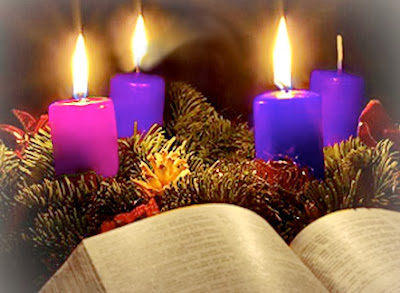Gaudete Sunday: Rejoice in the Lord Always
By Archbishop Charles J. Chaput, O.F.M.
For anyone who seeks out the real meaning of the holidays, the last few days before Christmas are the most powerful period of Advent and an intensely beautiful time of year. This weekend we celebrate Gaudete Sunday, with its spirit of joy and its rose liturgical vestments as an alternative to the season’s violet.
The day takes its name from the opening words of the Introit at the beginning of Mass: Gaudete in Domino semper, or “Rejoice in the Lord always” (Phil 4:4,5). And it’s followed just a few days later by the Octave before Christmas, Dec. 17-23, the time of the “O Antiphons.”
In Christian worship, an antiphon is a special prayer recited or chanted before a psalm or canticle. The “O Antiphons” refer to the seven antiphons recited before the Magnificat during Vespers in the Liturgy of the Hours. They entered the Church’s liturgy as early as the fifth century. By the eighth century they were a regular part of Christian liturgical life in Rome. Thus, they belong to a very ancient Advent tradition of glorifying God.
Each O Antiphon names a title for God’s Anointed One: O Wisdom; O Lord; O Root of Jesse; O Key of David; O Rising Sun; O King of the Nations; O Emmanuel (meaning, “God with us”).
Each antiphon is linked by Scripture to the prophecy in Isaiah of the coming of the Messiah.
One of the biggest sadnesses of modern life is this: We’ve mistaken comfort for happiness, and as a result, the pursuit of satisfaction has taken away our joy. We live in a culture increasingly based on the strange idea that whatever we want, we deserve — and we should have it, right now; a culture that constantly teases our appetites, fabricates new “needs” and then urges us to want more. This is a recipe for discontent.
As C.S. Lewis said more than 50 years ago, it’s little wonder that many people, including many Christians, become so fed up with the “holiday” season’s frenzy that they endure it rather than enjoy it, and can’t wait for it to be over.
In contrast, the more deeply we live Advent, and the more prayerfully and patiently we wait for the coming of Jesus Christ in Bethlehem, then the more fully we experience the joy of Christmas. For Catholics throughout the centuries, Christmas Eve begins the Christmas season, which continues through the Epiphany to the Baptism of the Lord. As the popular saying rightly goes, Jesus is the reason for the season.
Taking Christ out of “the holidays” removes any real joy — the winter solstice is an interesting natural fact, but the shortest day of the year is a pretty thin reason to celebrate — and it makes “peace on earth” a well-meaning but implausible platitude. There is no peace on earth; nor can there ever be without the cross of Jesus Christ.
During these final Advent days of Gaudete Sunday and the O Antiphons, the Church gives us a last opportunity to settle our spirits, quiet our worries and refocus our hearts on the One who should anchor our lives. Human history changed fundamentally and forever in Bethlehem. The child we wait for is the hope of all men and women, in every culture, in every age.
The joy of Christmas has very little to do with the gifts we give or get. What begins at Bethlehem and leads to Golgotha and beyond is a revolution — the most profound in history and the only real one; a revolution sparked by God’s intervention and love.
May God grant all of us the grace to experience the coming of God’s son for what it truly is; and may he bless every one of us and our families as we wait for the miracle of Bethlehem.





Comments
Post a Comment
Comments are moderated and are published at the blogger's discretion.